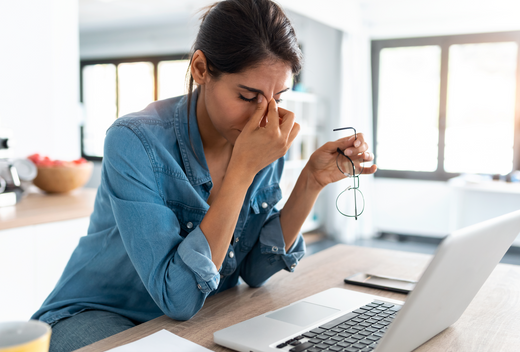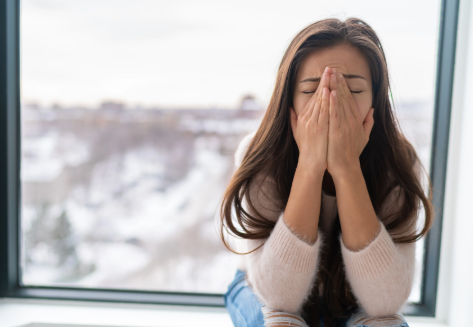The Physical Manifestations of Anxiety: Understanding What Your Body Is Telling You

Anxiety is more than just feeling worried or stressed out. It’s something that can take a real toll on your body, not just your mind. If you’ve ever felt like your heart is racing, your stomach is doing flips, or your muscles are tied up in knots when you feel anxious, you’re not imagining it. Anxiety has a way of showing up physically, and understanding these symptoms is the first step toward managing them.
Let’s dive into what anxiety does to your body, why it happens, and how you can regain control when things feel overwhelming.
Why Does Anxiety Affect the Body?
When you feel anxious, your brain activates the sympathetic nervous system—the part responsible for the "fight or flight" response. It’s like your body thinks there’s a tiger in the room, even if the danger is something like a stressful exam or social situation. This response floods your system with stress hormones like adrenaline and cortisol to help you react quickly.
But when this system stays active for too long, it can cause chronic stress, leaving your body constantly on high alert. This is where those uncomfortable physical symptoms come in.
Common Physical Symptoms of Anxiety
1. Racing Heart and Heart Palpitations
Your heart feels like it’s about to leap out of your chest. Anxiety increases your heart rate to pump blood faster, preparing your body to run or fight. While it’s useful in emergencies, it can feel scary during a normal day.
2. Shortness of Breath
Anxiety often causes quick, shallow breathing, making you feel like you can’t catch your breath. This is your body trying to take in more oxygen for energy, but it can leave you feeling dizzy and lightheaded.
3. Muscle Tension
Ever notice your shoulders creeping up toward your ears or your jaw clenching when you’re stressed? Anxiety can cause your muscles to tighten, leading to soreness and even headaches.
4. Digestive Issues
Your digestive tract is closely linked to your brain through the gut-brain axis. Anxiety can disrupt digestion, causing stomach aches, nausea, or diarrhea. Ever heard of “butterflies in your stomach”? This is it on overdrive.
5. Sweating and Feeling Hot or Cold
Your body might start sweating even in a cool room, or you might suddenly feel hot or cold. This is your body’s way of trying to regulate temperature during a stressful situation.
6. Fatigue and Weakness
Being on high alert drains your energy. After an anxious episode, you might feel completely wiped out, even if you didn’t physically do much.
7. Panic Attacks
These are intense episodes of anxiety that can mimic a heart attack, with symptoms like chest pain, trembling, and a sense of impending doom. They’re incredibly frightening but not life-threatening.
Why Does Anxiety Feel So Intense?
The adrenal glands play a big role in your body’s stress response. They release cortisol and adrenaline, which prepare your body to face threats. When you feel stressed for extended periods, these hormones stay elevated, leading to the physical manifestations of anxiety.
Your sympathetic nervous system does the heavy lifting during this process. But here’s the good news: its counterpart, the parasympathetic nervous system, can help calm you down. This is known as the "rest and digest" system, and activating it is key to finding relief.
How to Manage Physical Symptoms of Anxiety
1. Practice Deep Breathing
Deep, slow breaths can calm your nervous system by activating the parasympathetic response. Try inhaling for 4 counts, holding for 4, and exhaling for 6. This technique reduces stress hormones and lowers your heart rate.
2. Incorporate Physical Activity
Regular exercise helps your body release endorphins, which counteract stress hormones. Being physically active also reduces muscle tension and improves your overall mood.
3. Try Relaxation Techniques
Meditation, yoga, or progressive muscle relaxation can help relieve muscle tension and promote a sense of calm. These activities encourage your body’s “rest and digest” mode.
4. Build a Strong Support System
Spending time with friends and family can lower stress and anxiety levels. Having someone to talk to helps you feel less alone in managing your anxiety.
5. Get Professional Help
If anxiety feels overwhelming, don’t hesitate to reach out to a mental health professional. Techniques like cognitive behavioral therapy (CBT) can help you reframe negative thoughts and reduce the impact of anxiety on your life.
6. Focus on Nutrition
What you eat affects your overall health. Foods rich in magnesium, omega-3s, and B vitamins support brain health and can help regulate anxiety.
7. Set Boundaries
Feeling overwhelmed often stems from taking on too much. Learn to say no and create space for self-care in your daily life.
When Anxiety Interferes with Daily Life
It’s normal to feel anxious occasionally, but if it starts affecting your daily life—like staying in bed all day or avoiding social situations—it’s time to take action. Chronic anxiety can lead to health problems like high blood pressure or even increase the risk of heart disease. The sooner you address it, the better.
Introducing icalm: A Natural Way to Calm Your Nervous System
Sometimes, anxiety can feel like too much, no matter how hard you try to manage it. That’s where icalm stress relief shots come in. Packed with natural ingredients, these shots are designed to calm your nervous system and help you feel more in control. They’re small, easy to take, and perfect for when anxiety sneaks up on you.
Whether you’re dealing with panic attacks, struggling to focus, or just need a moment of peace, icalm offers a fast, effective way to tackle the anxiety that’s holding you back. It’s not just about surviving the moment—it’s about thriving in the long term.
Final Thoughts
Anxiety might feel like a constant battle, but understanding its physical symptoms is the first step to taking back control. Your body is trying to communicate with you—it’s just a matter of listening and learning how to respond. With tools like deep breathing, exercise, and support from loved ones, you can start to calm your nervous system and find relief.
And when you need extra help, icalm stress relief shots are here to support you. Anxiety doesn’t have to win. You’ve got the power to manage it, one step at a time.









Leave a comment